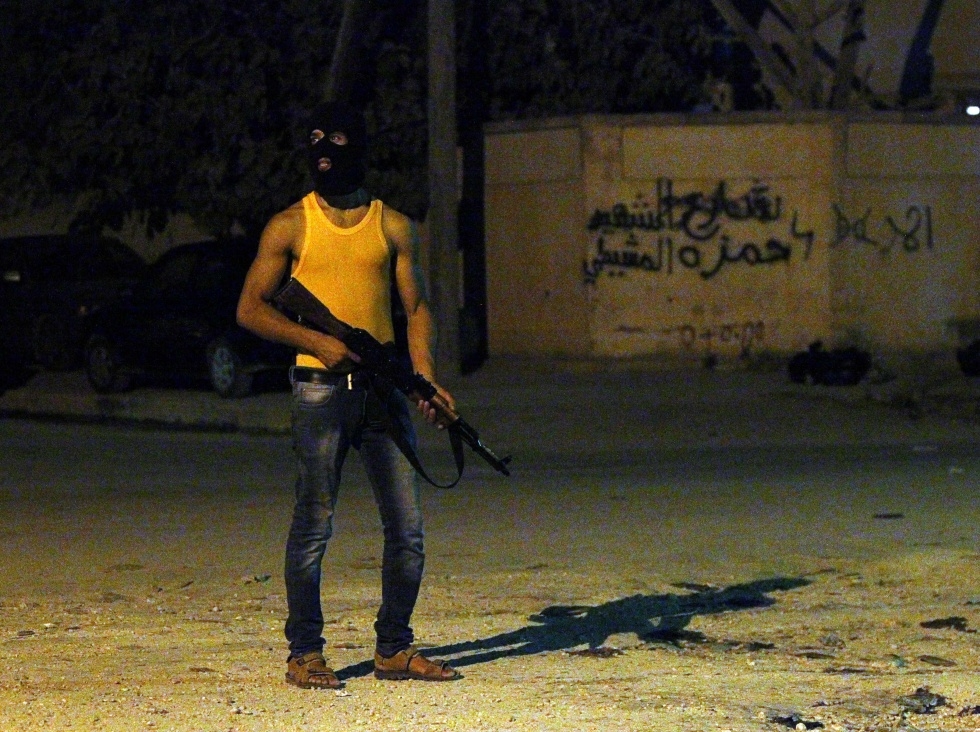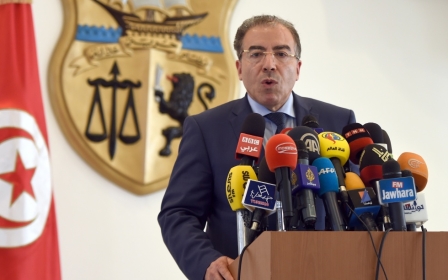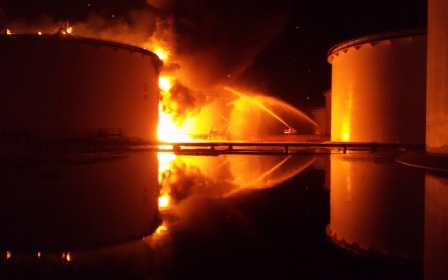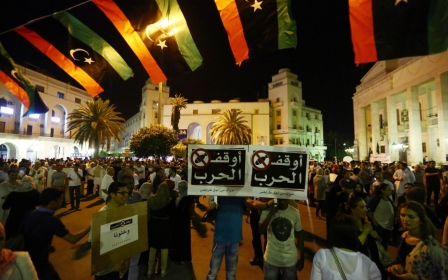Libya stalemate continues as no side claims victory

Foreign embassies and Libyans alike are this week abandoning Tripoli by any means possible as fighting intensifies, pulling the rug out from the possibility that diplomats can mediate a ceasefire.
Following America’s exit at the weekend, France evacuated its staff by a warship that dashed into Tripoli harbour on Tuesday. Germany, the Netherlands and Japan evacuated their own diplomats by road to the Tunisian border, while Italy flew staff from the capital’s last functioning airport aboard a C-130 transport plane. Not all evacuations have gone smoothly - British diplomats were machine gunned on the Tripoli outskirts on Saturday, the bullet proof glass stopping four shots. Britain and Italy are keeping their embassies open, with staff confined to shelters as the bombardment continues.
They are not the only ones. Libyans are now fleeing also; at Tunisia’s Ras Ajer crossing, between four and six thousand Libyans exit each day, and more would do so, except that they can’t get the petrol. Few petrol stations in Western Libya have fuel, a result of tanker drivers refusing to go out, and the burning of 12 million litres of fuel when rockets set the fuel tanks ablaze.
The embassy exits are a grim ending to a three-year engagement to try and rebuild a country shattered by an eight month civil war that toppled Muammar Gaddafi in 2011.
When that war ended, diplomats were full of hope that Libya would emerge as the brightest of the so-called Arab Spring states, including Egypt, Tunisia and Syria. Libya has Africa’s largest oil reserves and only six million people, and many predicted a bonanza in the new democracy.
It has not worked out like that. The General National Congress, elected in 2012, instead of dissolving the militias reinforced them. Each political faction funded its own militia, to the point where numbers swelled to four times the size the militias were during the uprising. Far from providing security, the militias were the principle source of insecurity, especially in Tripoli.
The capital has been dominated by the two most powerful militias from the 2011 uprising, those of Misrata, 120 miles east of the city, and Zintan, 90 miles south west. Each captured strategic assets during the revolution and has refused to hand them back.
The current fighting is an attempt by Misrata militias, allied with Islamist units, to capture Tripoli international airport, held since the revolution by the Zintanis.
That fighting has spread across the city, turning it into a war zone. Massive fires have been started in petrol storage tanks on the airport highway, sending a huge black smoke pall into the sky that is visible from space.
Hospital 'breakdown'
Meanwhile the health ministry has warned its hospitals are facing “complete breakdown” after being overwhelmed with the wounded. There are no accurate casualty figures for the fighting, in part because the protagonists each ship their own wounded and dead to their home towns.
Tripoli Medical Centre, the capital’s largest hospital, has run out of many drugs and armed militias have assaulted and kidnapped several staff, among them a Filipino nurse. The attacks have in turn deterred many medics from showing up for work, and hospitals have been appealing for volunteer doctors to come in. Generators have run out of fuel and the city’s frequent power cuts plunge the hospital into darkness, halting some operations.
The Tripoli fighting, which began as a militia turf war for the airport, has morphed into a wider struggle between Islamists and nationalists which is also going on 400 miles to the east in Benghazi.
Here, nationalist forces under former general Khalifa Haftar, backed by the army and air force, have been battling three Islamist brigades since mid-May. On Tuesday the Islamist Ansar Al Sharia brigade scored a major victory, storming the base of the army special forces brigade Saiqua (Thunderbolt) in fighting the Red Crescent said left more than 75 soldiers dead.
Ansar Al Sharia, blamed by Washington for the killing of its ambassador in the city in September 2012, posted photographs showing its fighters in the ruined base, and proclaimed Benghazi as an “Islamic Emirate.”
But hours later, thousands of protestors took to the streets in protest, marching on Ansar Al Sharia’s base at the city’s Jalal hospital. Rather than open fire, Ansar units fled the base, while air strikes hammered their units elsewhere in the city. The result is that, as with Tripoli, the Benghazi fighting is locked in a stalemate.
It is a stalemate that is destroying the country. Both Tripoli and Benghazi airports are now wrecked, making their capture a pyrrhic victory. As the dead pile up, so does the mutual hatred, casting doubt on whether the new parliament, due to convene on August 4, can find a way of bridging the divide.
The singular characteristic of the fighting is that while it is bloody, it is also ineffective. Libya’s militias fight fiercely, but they are poorly trained and led, and lack offensive equipment. Their standard weapons are machine guns and anti-aircraft guns mounted on jeeps, which give them mobility but are no use in attacking prepared positions because they lack armour.
Each side has a handful of ancient Soviet-built tanks, but the fear of wire-guided anti-tank weapons means they are used as long range artillery rather than assault weapons. It is the same story with artillery: Like Gaddafi’s army, the militias have no training to use heavy guns, and prefer to rely on grad rockets, launched from sets of tubes mounted on trucks. The grad needs little training to fire, and has been described as the “poor man’s artillery”, and is also inaccurate.
The result, in both cities, has been mayhem. Rockets, tank shells and mortar rounds careen across the sky, many landing in civilian homes far from any conceivable target. In south and west Tripoli, the area around Zintani positions being assaulted from all sides are pocked marked by shellfire, with residents cowering inside. “Every street has been hit,” said Seraj, a resident of Gurji, one of the Tripoli suburbs hit hard. “It is impossible to know who has fired them.”
Battles to end in stalemate
A Western military analyst who has studied irregular warfare said the lack of training and equipment means the battles in both cities are likely to end in stalemate. “A regular armoured infantry battalion would cut through any of these brigades like a knife,” he said. “The problem is, the government doesn’t have any.”
As fighting has worsened, so there has been disintegration of government authority. This is in part because Libya is in transition. The former, Islamist-led, General National Congress is no more, but the new House of Representatives, elected in June, has yet to assemble. That has left the administration of prime minister Abdullah al-Thani lacking a mandate for decisive action.
Al-Thani, the former defence minister, has thousands of troops he could call on. In southern Tripoli, two infantry brigades remain sitting on their hands in two vast bases. Thousands more armed police do the same, all of them lacking orders.
But the prime minister’s calculation appears to be that these units will not fight unless they have a firm idea of who commands them, with individual members having loyalties to different tribes and parties. His own position is precarious, underlined when the Islamist militia who control Tripoli’s remaining airport, Miitig, refused to let him board his own plane last week.
Optimists hope parliament can solve this problem when it meets in Benghazi. But it is unclear if it will be able to bridge the divide. The fighting in Tripoli is in part recognition that the new parliament, unlike the former congress, will no longer have an Islamist majority - one reason why Islamist and Misratan units are trying so hard to capture the city.
While nationalists are calling for the parliament to be moved even further east, to Tobruk, a nationalist stronghold, the Islamist president of the outgoing congress, Nuri Abu Sahmain, has demanded the Representatives assemble in war-torn Tripoli, where Islamists are strong.
With both major airports out of action and militia checkpoints studding the country, it is unclear how many of the 200 newly elected members can even make it to the first parliamentary meeting, wherever it is held.
Unclear, also, is whether that meeting will make any difference. One thing above all others has become clear in Libya in recent weeks, and that is that the law that trumps all others is the law of the gun.
New MEE newsletter: Jerusalem Dispatch
Sign up to get the latest insights and analysis on Israel-Palestine, alongside Turkey Unpacked and other MEE newsletters
Middle East Eye delivers independent and unrivalled coverage and analysis of the Middle East, North Africa and beyond. To learn more about republishing this content and the associated fees, please fill out this form. More about MEE can be found here.




